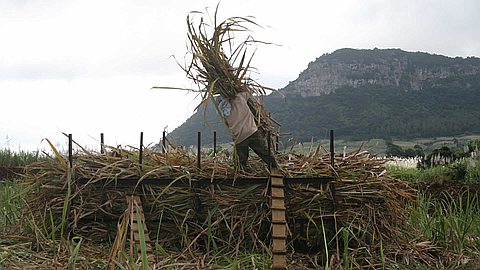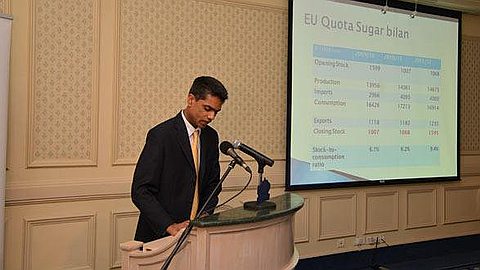Geo Govinden, Foreign Representative of Sugar Union in Mauritius: Sugar Industry at Risk

Policymakers in the EU reached Wednesday, June 26, late at night, to overcome their differences on several key measures of the reform of the Common Agricultural Policy, but the European reform will not be to the benefit of ACP countries including Mauritius. Geo Govinden gives us hot comments in Brussels, while stood the debates in Parliament. Three questions ...
The CAP reform is almost ready and it seems that ACP countries will be the big losers of the decision to put an end to EU sugar quotas in 2017 ...
ACP countries have not ceased for several years indicate to European policy makers that the abolition of quotas in the EU sugar (cane, beet ...) would have catastrophic effects for the ACP countries. In fact, studies conducted by many independent observers and the impact assessment of the European Commission in 2011 found that the abolition of quotas would result in market instability, a total lack of predictability and a likely decline in price 45% compared to the market prices observed in September 2012 - the level at which no ACP country could export to the EU.
LMC International provides a decrease in revenue of approximately EUR 850 million over the four-year period post-abolition of quotas, driving 200,000 people below the poverty line and the loss of 400 000 direct and indirect jobs. Another study by the European Commission in December 2012 (Prospects agricultural market and income) confirms that the EU will become self-sufficient or net exporter and imports, including preferential imports including those of Mauritius, would be less attractive.
What impacts Mauritius?
As I said, we operate in a liberalized environment. Therefore, we need to enable us to strengthen the competitiveness of our industry, because in a short time, we must fight against other players on a narrower market. This will include sugar beets ACP but also our friends. It is urgent, in my opinion, to finalize the projects identified in our strategic plan, including those related to energy production.
What must we do on the diplomatic front, since it seems that the bell rings, this time for good, in 2017?
Continue to make clear to our European partners that this decision goes against the objectives of the Cotonou Agreement, the Economic Partnership Agreement, it shows a certain inconsistency between their business and the development policy. It will try to convince them of the need to make the point in the not too distant future the impact of this decision and, if necessary, take corrective action. For example, to propose new measures of support.





